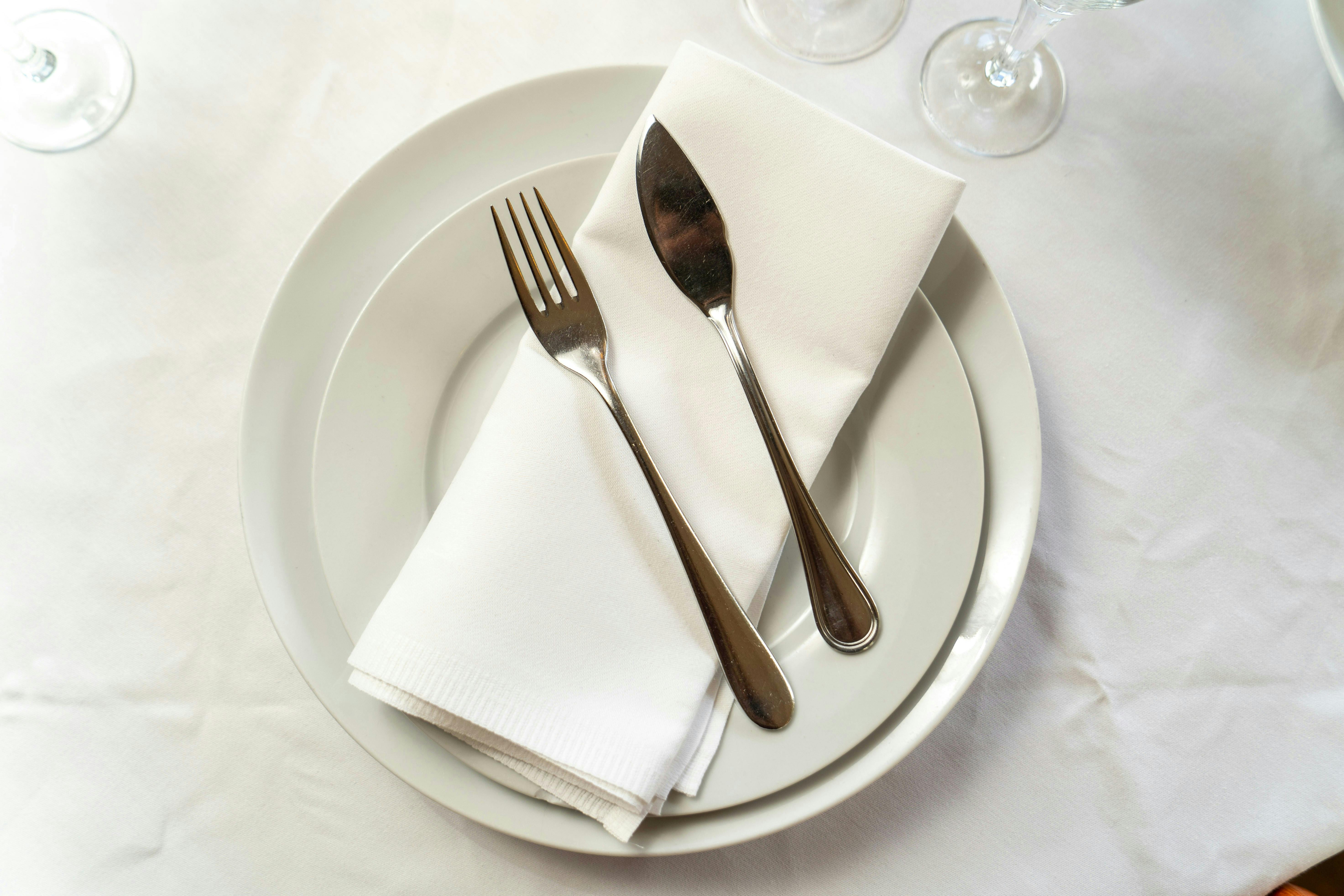I like food. A lot.
I like good food, and let’s be honest, I like crappy food too. I like eating three meals a day—with some snacks in between.
So when I started sensing that God wanted me to start fasting as a regular rhythm, I did what every God-fearing, Jesus-loving, devoted Christ follower would do: I ignored him for a few months.
But that gentle whisper kept coming back…
“Trust me. Start fasting.”
One thing about God is that he’s persistent. I kept sensing His prompting for me to act. Eventually, I entertained Him. I told God that if he wanted me to fast regularly, he would have to change my heart around fasting.
What Does the Bible Say About Fasting?
At that point in my life, I had fasted a handful of times and received some teaching that generally made sense to me, and knew that it occurred many times throughout the Bible. It was also a common practice in Jesus’ day—we know that Jesus himself fasted:
In the Gospel of Matthew, Jesus says, “But when you fast…” The implication is that fasting is a regular rhythm for Jesus. So, should it be a regular rhythm for you and me?

Even knowing all of this, fasting still felt like a hyper-religious chore. Why does God move more when I’m a hangry, depleted shell of a human? It sounded cruel. This was my first indication that my understanding was lacking—because cruel is not a word I have come to associate with the God of the Bible—quite the opposite. My foundational understanding of God is that he is good and ultimately wants me to live the kind of life he designed for me…one that is full.
I came that they may have life and have it abundantly. (John 10:10)
With this reminder of truth at the forefront of my brain (and stomach), I knew I needed to seek further wisdom and understanding if I wanted more of the full life God was offering. I needed a heart change around fasting.
The ‘Why’ Behind Fasting
Around the same time, I was introduced to some books by author John Mark Comer and started listening to his podcasts. One fateful day, I found his four-part teaching series on, you guessed it—fasting.
By the end of the first teaching, I knew I needed to attempt fasting again. Throughout Scripture, fasting seemed to happen for various reasons: to get closer to God, to get clarity from his Spirit, to ask God to move in a big way, to fight spiritual battles—the list goes on. I wanted part in this. I wanted more life to the full.

This time, my heart was better positioned to take the first step—I was feeling more confident in the “why” I should fast and excited to trust God’s purpose in it. And well, whaddayaknow, I got an email inviting me to fast for a teaching series at Crossroads the next day: four weeks of opportunities to pray and fast. My anti-fasting defenses’ final wall fell with this literal invitation to fast.
“Okay, Father,” I said, scanning over this very timely email. “For the next four weeks, I’ll fast from Sunday night until Monday night dinner. We’ll see what happens when the four weeks are over.”
That was three years ago. And now, I’m fasting one or two times a week regularly.
How to Practically Fast
As you can imagine, I’ve learned some things on my fasting journey. If you’re looking for more of the “why” behind fasting, check out my friend Vanessa’s article here. Below are a few tips and tricks on fasting I’ve picked up over the years.
-
Fast from food. There’s a difference between fasting and abstaining. When we fast, we’re not eating for a certain period of time (while ensuring we’re being safe and consuming water at the right times). Sometimes, God might nudge us to abstain from specific things in our life, i.e., caffeine, alcohol, and social media, but if you’re fasting, the biblical definition = not consuming food.
-
Start small. This is a universal truth for anything you’re just starting, especially if it’s something you’ve tried before and it felt like you failed. Start small with fasting, too. If you want to engage in fasting regularly, give yourself some wins. Start with your afternoon snack, or just skip breakfast or lunch. You don’t have to go big or go home regarding fasting.
-
Plan your fast. Look at your calendar and pick a day and time(s) that work for you. Mondays are great for me because I have a lot of meetings with 15-30 minutes in between. Instead of rushing to eat breakfast so I can commute to work and then rushing to eat lunch between meetings, I take the time I would spend eating, and I spend it with God. Taking a walk is my favorite way to fill the time that I would otherwise be eating.
-
Don’t replace food with distraction. When you feel hungry, you will look for distraction to forget about it, which I believe takes away from the heart of fasting. With each hunger pang, we should remind ourselves that God is truly all we need. Your inclination (read: MY inclination) will be to fill your hunger with distraction: more work, scrolling your phone, reading a book, watching a movie, etc. Fasting is most potent when you engage God throughout your fast. I often abstain from social media and TikTok on days that I fast.
-
Try “breath” prayers. Sometimes, okay, often—I don’t really have the brain space to form a coherent thought, let alone have a convo with God when my stomach and brain are telling me to find the nearest snack. Breath prayers are a GREAT way to take a moment, breathe, and connect with Jesus. You can make up your own breath prayer, but one of my go-to’s (pulled from Psalm 23) is: “The Lord is my shepherd” (say this out loud or in your head when you inhale) and “I lack nothing” (say this out loud or in your head when you exhale).
-
Add a pinch of salt to your water. If you weren’t already, make sure you’re drinking water when you fast. And if you start feeling lightheaded or get a headache easily, you likely need some electrolytes. A simple way to stay ahead of this is to drink water throughout the day with a pinch of salt in it. It doesn’t matter what kind of salt, but if your water tastes salty, it’s too much.
-
Prepare for the hunger waves. Hunger comes in waves; it doesn’t grow. There is a “hunger hormone” called ghrelin that is released in your stomach to tell your brain when it’s time to eat. You’ll notice your hunger is stronger around the times you typically eat, but then it will dissipate after a while. My most extended fast was 36 hours, and I’ve yet to experience actual hunger pangs (but that may not be the same for you, and that’s okay). I honestly believe that God’s grace and provision for my body when I’m fasting are things everyone can experience.
-
Limit caffeine. If you like to drink coffee throughout the day, try to stick to decaf after that first cup, or you will likely feel very jittery, anxious, and hungry during your fast. I am a morning coffee drinker, and if I don’t drink caffeine, I will have a raging headache by 9 a.m. On days that I fast, I’ll drink half my normal cup in the morning, and it’s enough to keep the caffeine headache away.

I hope some of these encourage you to try fasting again or for the first time. I’ve also included an example of my fasting day. Whenever and however you decide to fast, I pray you experience the presence of God in your life in a new way that encourages you to make fasting a regular rhythm.
-
6:30 - Wake up. Half my usual cup of coffee w/ a little cream. Because black coffee is 👎🏻.
-
8:00 - Drive to work. I have a 45-minute commute, so Monday is Bible Project podcast day. I sip water (with a pinch of salt, of course) as I drive to work.
-
9-9:30 - First meeting of the day. I’m usually very hungry at this point.
-
9:30-10 - Email. Breath prayers to get through the wave of hunger.
-
10:00-12:00 - Mix of meetings and working at my desk. I sip water and sometimes non-caffeinated tea.
-
12-12:30 - “Lunch break”. I put in headphones, turn on an instrumental playlist, and walk around the second floor of my workplace for 30 minutes. This is time spent with Jesus, and it is my favorite part of fasting. Honestly, it’s something I look forward to every week.
-
12:30-2:30/3:00 - Working at my desk, meetings, and then I head back home to finish up work before traffic gets ridiculous. Lots of breath prayers between 1 and 2 p.m.
Side note: By 2:30/3:00 p.m. I have better mental clarity than I have on days when I’m not fasting, and I typically feel like that until I break my fast. However, it took a few reps before this was the case.
-
3:30-5:00 - Finish work and kids get home. Sip water. Breath prayers to get me through the work + kids at home combo.
-
5:00 - Break my fast with a beer. This ritual is also something I look forward to every week. I take 5-10 minutes to pour a glass of lite beer and attempt to find a quiet place to break my fast with Jesus. I’ve discovered that slowly sipping a beer helps get my stomach get ready for food again, and fast-breaking beer seriously slaps. For you, that may be a soda, tea, or decaf coffee—whatever primes you to prepare for eating.
To learn more about fasting, check out this message from Crossroads teaching pastor Chuck Mingo.
Disclaimer: This article is 100% human-generated.
Reflections to share? Got an idea for an article? Email us at articles@crossroads.net
At Crossroads, we major on the majors and minor on the minors. We welcome a diverse community of people who all agree that Jesus is Lord and Savior, even if they view minor theological and faith topics in different ways based on their unique experiences. Our various authors embody that principle, and we approach you, our reader, in the same fashion. You don’t have to agree with every detail of any article you see here to be part of this community or pursue faith. Chances are even our whole staff doesn’t even agree with every detail of what you just read. We are okay with that tension. And we think God is okay with that, too. The foundation of everything we do is a conviction that the Bible is true and that accepting Jesus is who he said he is leads to a healthy life of purpose and adventure—and eternal life with God.










